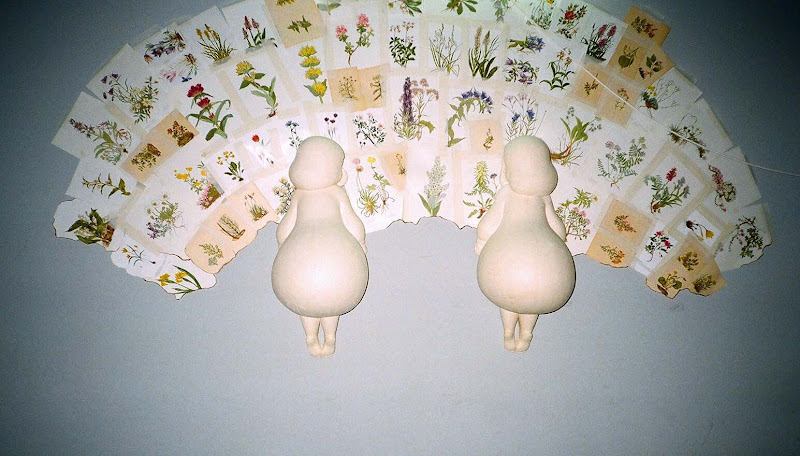Dreadlock holiday; when she returned home it was time for a haircut. She tipped her head back. Carefully she took the razorblunt implement, held it to the light and purified it in the mug’s luminous essence: alcohol. The meths reminded her of the hazy drugfug, the fumes and the flames of her earlier days. She used to watch them carefully, those flames atop the fiery shots that she downed in bars, one by one, like swallowing sparklers that fizzled out in her mouth: a daring, if not dangerous, trick.
Now Sian watched the scissors sizzle, flicker open and shut like flames across her hair. Scissors spread-eagled like a pair of legs, vibrating, quivering with the cut and squeal of each lock lost, her ebony tresses falling like trellises, the scissors snapping shut like curtains, closing on the final scene, the signal to the audience that the deed is done. Her hair is cut.
~~~
There is no audience to signal to, except herself. The strands of straight black hair lie like jailbars on the table, prison bars that she has broken free from: made a break for short spiky simplicity. The bars clunk as they hit the table and her eyes freeze across them like icicles – they will not melt for a few minutes, not until she hears the soft unwinding of keys from a coat pocket, the failure of the door’s silence as it is forced to open, the sound of another. Then she will look up.
“What the fuck is this about?” The words whistled around Sian and imprinted their vicious anger on her consciousness, not quite deflected by her hair’s short spikes – not yet . The spikes weren’t armour yet, they let goosebumps pinch on her neck like fat bubbling on a frying pan. She didn’t want to be one of the pretty girls whose eyelashes mimic their hair – long, black, wavy – whose mouths were lily fountains to drink from. Not any more. Yet at least the long hair had been a protection, a curtain to a four poster bed were she could curl up to her soul and introspect, stare straight at the kernel of her thoughts and forget about the rest of the world. This short hair left her free – and vulnerable.
“This is my fucking notebook! You can’t just cut your fucking hair all over my notebook!” Yet the strands formed words, swinging around the straight lines of the notebookblack strands swung around the straight lines of the notebook like words, communicating in a new language. Freshly cut hair, thought Sian: finally something scribbled in a notebook that could be described as original.


